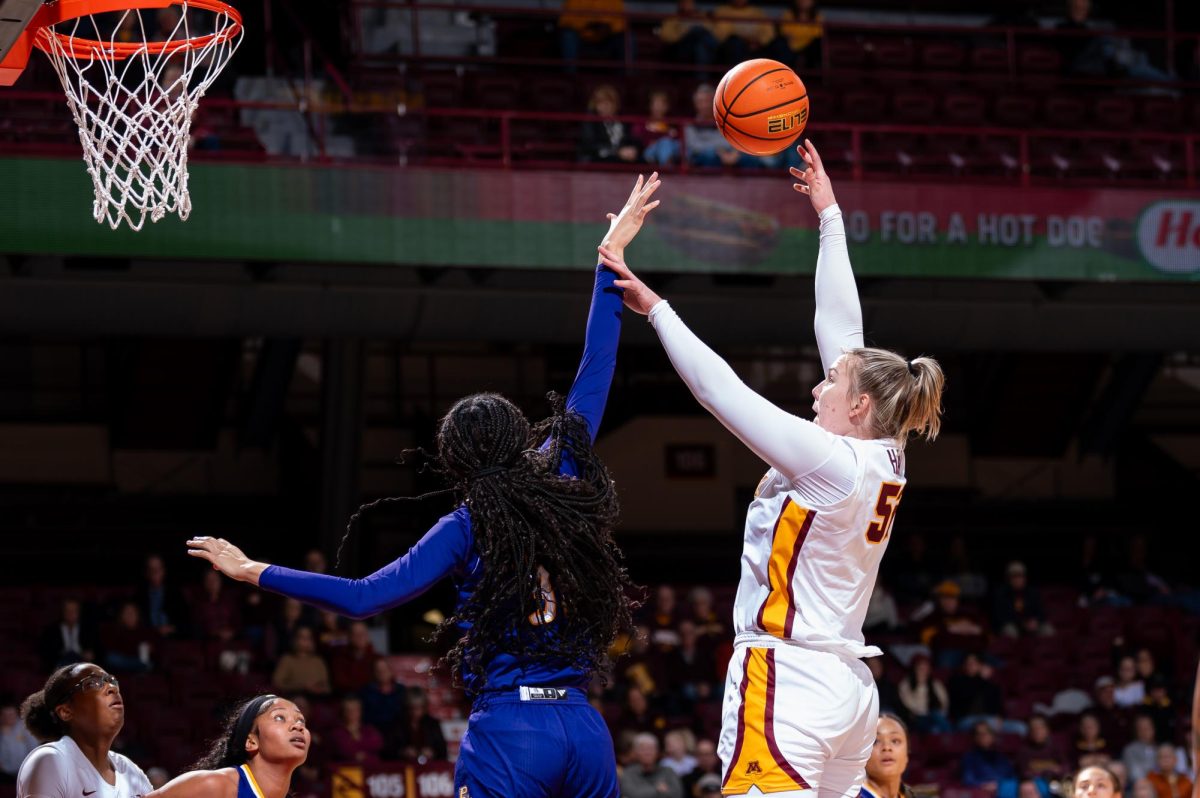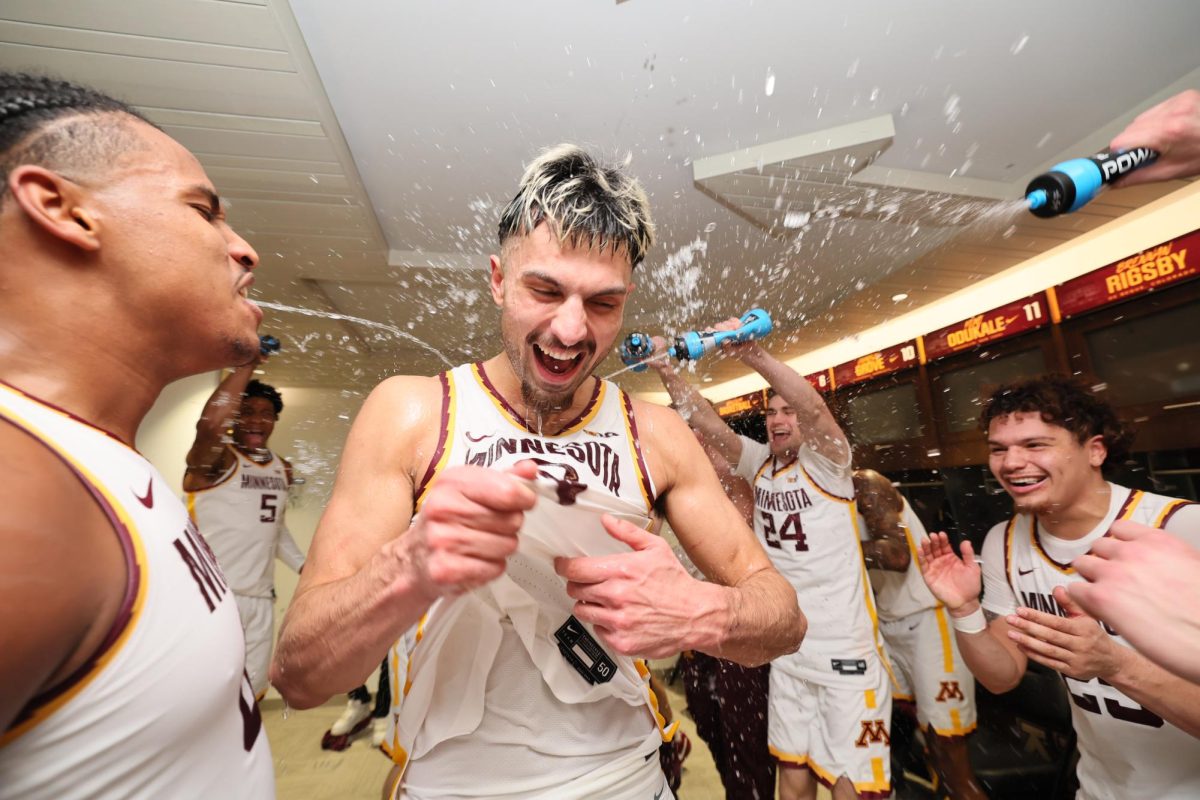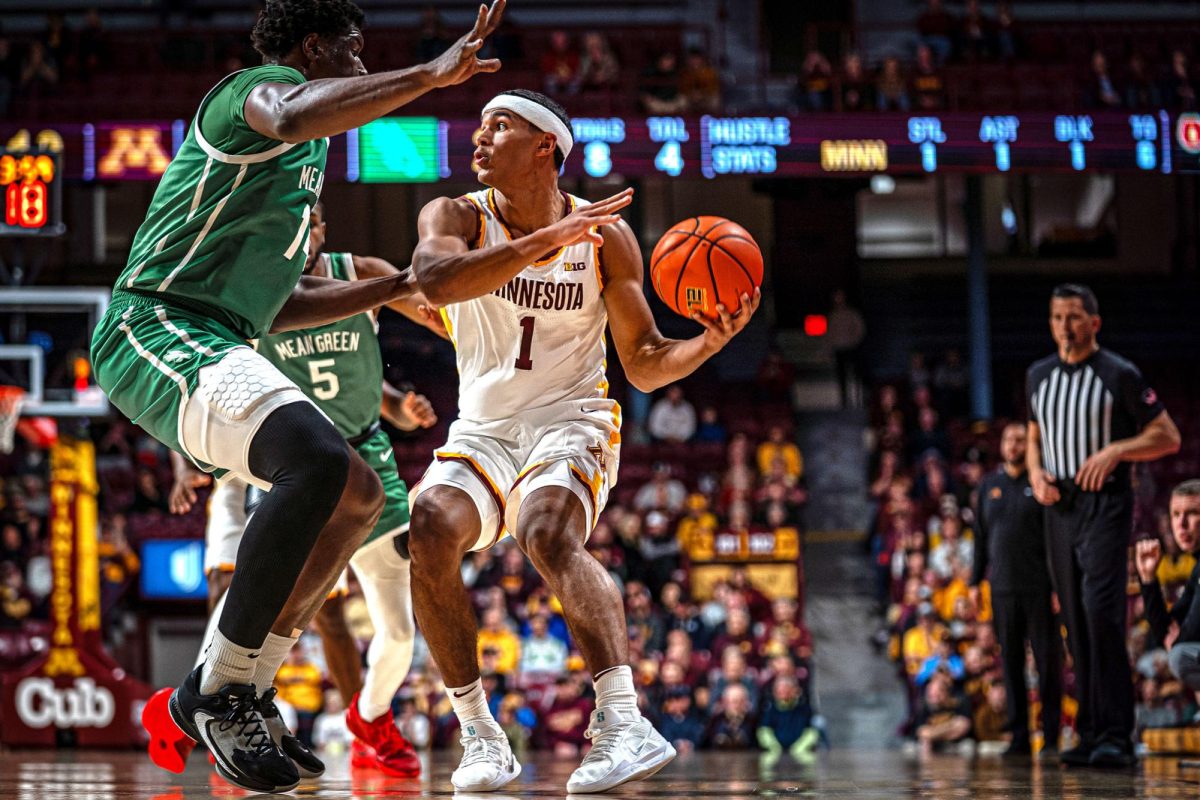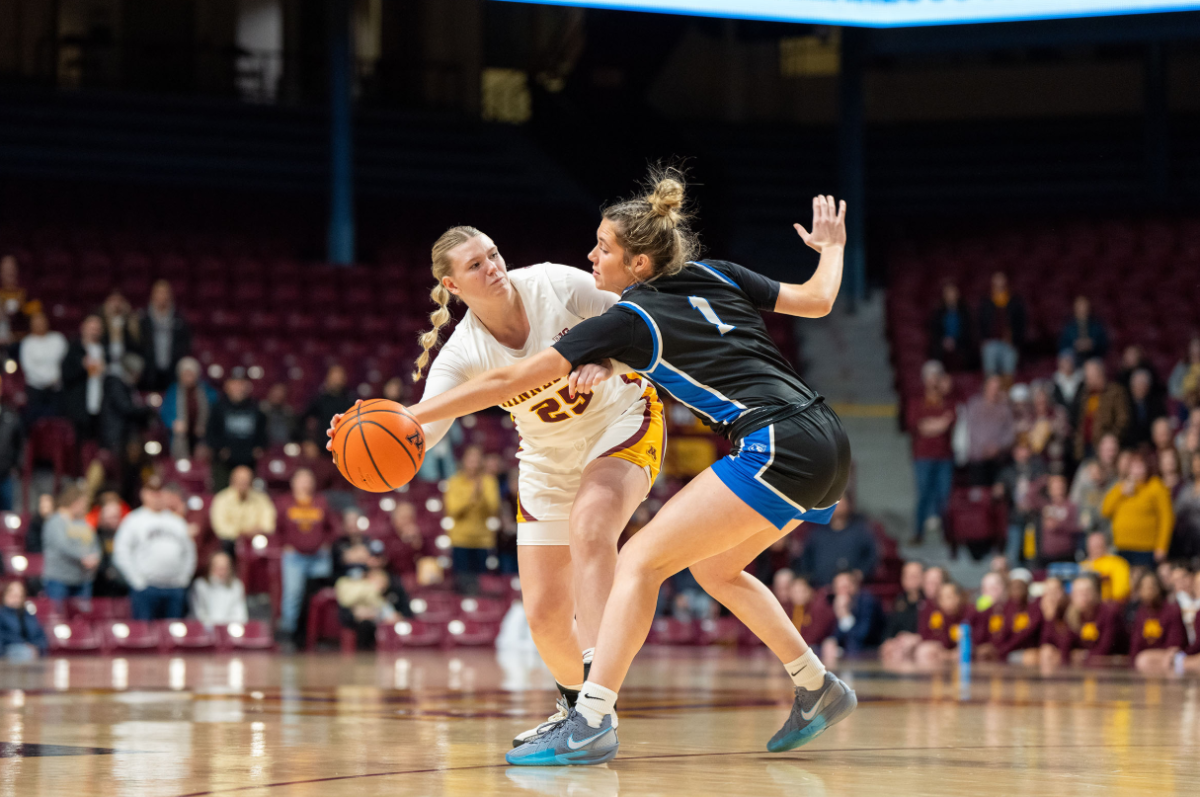Six days a week, usually before sunrise, the Gophers rowing team is awake and ready for practice. Despite winning two events at the Head of the Mississippi regatta earlier this month, their first race of the fall, rowers caught no breaks from head coach Wendy Davis last Wednesday morning as they powered through two intense, back-to-back nine-minute workouts on the Mississippi River. Davis watched every stroke closely from a motorized boat, megaphone in hand to help the boats navigate the quirks and currents of the unpredictable river and to instruct her athletes on what they were doing right and wrong. âÄúMolly, youâÄôre catching late,âÄù Davis sternly directed a rower whose oar blade was entering the water slightly behind the others. âÄúWendy doesnâÄôt really leave anyone alone,âÄù senior varsity rower Linnea Trandem said, âÄúbecause thereâÄôs always room for improvement.âÄù Although womenâÄôs rowing at the University is a Division I sport, the team holds open tryouts each fall where anyone can try out, regardless of experience. For up to one year, beginning rowers can compete on the novice team, which is Division I as well and competes at most of the same regattas as the varsity team. That anyone can participate, however, is a bit misleading. Rowing is tough and the burn-out rate is high, particularly among novices; a result, junior redshirt Alli Fast said, of the level of commitment required and the physical toll exacted by the sport and the additional challenge of keeping up with academics. In-season training involves lifting weights and running in four-mile stints twice a week. âÄúIt definitely gets really hard,âÄù Fast said of trying to balance school with rowing. âÄúSometimes it just all seems to pile on one week.âÄù The teamâÄôs new boat house, constructed in 2007 on the East River Flats below the hospitals and Super Block, houses a weight room with around 30 rowing machines and a large oval water tank with oars and benches so rowers can simulate boat rowing and coaches can scrutinize athletesâÄô technique more closely. The new boat house is a drastic improvement from the previous one, which Davis called âÄúa tent with a couple of porta-potties.âÄù Trandem cockswained the Gophers to another win Sunday in the womenâÄôs collegiate four event âÄî four rowers and a cockswain âÄî in Rockford, Ill, where DavisâÄô tough love paid off. âÄúI think weâÄôre farther along than I remember being this early in the season in any past years,âÄù Trandem said, âÄúso I think weâÄôre in a really good place for our big races coming up.âÄù Although fall regattas âÄî rowingâÄôs term for âÄúraceâÄù âÄî technically count towards the teamâÄôs total number of meets for the year, they serve mainly as a preseason gauge of how the team is performing and what adjustments need to be made, while the more important events occur in the Spring. âÄú[Fall is] an evaluation period,âÄù Trandem said. âÄúItâÄôs seeing who works well together, itâÄôs building up that fitness and that technique level, and hoping it stays while weâÄôre inside for winter training.âÄù Trandem is an experienced cockswain, the term for the rower positioned at the stern of the boat, without oars, directing and encouraging the other rowers. Many look at a rowing race and see the cockswain seated at the stern, not rowing and barking orders, and assume they’re getting a nice, free ride. Not so, Trandem said. âÄúAfter races IâÄôm as out of breath as [the other rowers] are, if not more so,âÄù she said, âÄújust because while theyâÄôre working physically we have to do the work of eight people mentally. Nine, including ourselves.âÄù The cockswain is responsible for making sure every rower is doing their job, that every oar is in sync and that the boat avoids natural obstacles in the water, all while moving as fast as possible and trying to pass other boats âÄúOh, thereâÄôs a log in the river. I have to avoid that,âÄù Trandem said as an example of the many thoughts that fly through a cockswainâÄôs mind during a race. âÄúItâÄôs not hard to be a cockswain, [but] it is really hard to be a great cockswain,âÄù Trandem said. After WednesdayâÄôs workout, the team gathered around Davis in the boat house, where she asked her athletes to share their thoughts on the practice and how they could improve, a common theme for Davis and the team, which has finished fifth and sixth at the past two Big Ten Championships. âÄúWeâÄôre hoping that weâÄôre going to have a different [kind of] year this year,âÄù Davis said. âÄúI [donâÄôt think] itâÄôs a pipe dreamâĦItâÄôs just based on the reality of what weâÄôre seeing and what weâÄôre feeling.âÄù The work is never done, but so far this year itâÄôs paying off. Related: – Audio Slideshow of 6:45 am practice by Mark Vancleave
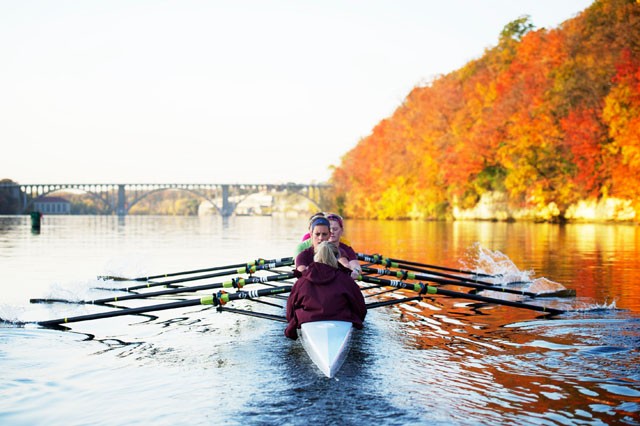
Image by Mark Vancleave
Members of the women’s varsity rowing crew prepare to turn upstream Friday morning near the Ford Parkway Bridge. The varsity level crew practices on the Mississippi at 6:45 am five days a week.
Fall rowing on the Might Miss.
by Andrew Baker
Published October 12, 2010
0
More to Discover



